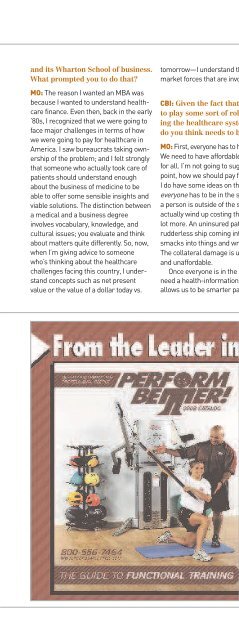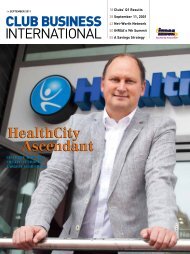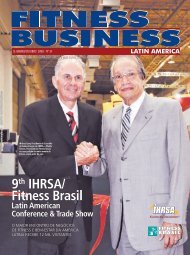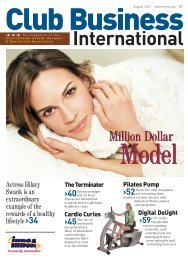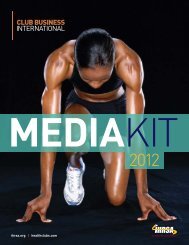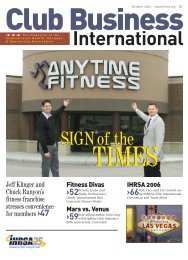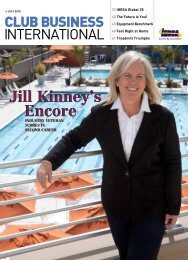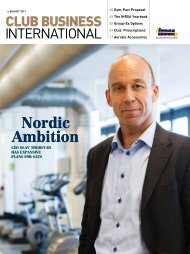Augie In Action! Augie In Action! - Ihrsa
Augie In Action! Augie In Action! - Ihrsa
Augie In Action! Augie In Action! - Ihrsa
You also want an ePaper? Increase the reach of your titles
YUMPU automatically turns print PDFs into web optimized ePapers that Google loves.
and its Wharton School of business.<br />
What prompted you to do that?<br />
MO: The reason I wanted an MBA was<br />
because I wanted to understand healthcare<br />
finance. Even then, back in the early<br />
’80s, I recognized that we were going to<br />
face major challenges in terms of how<br />
we were going to pay for healthcare in<br />
America. I saw bureaucrats taking ownership<br />
of the problem; and I felt strongly<br />
that someone who actually took care of<br />
patients should understand enough<br />
about the business of medicine to be<br />
able to offer some sensible insights and<br />
viable solutions. The distinction between<br />
a medical and a business degree<br />
involves vocabulary, knowledge, and<br />
cultural issues; you evaluate and think<br />
about matters quite differently. So, now,<br />
when I’m giving advice to someone<br />
who’s thinking about the healthcare<br />
challenges facing this country, I understand<br />
concepts such as net present<br />
value or the value of a dollar today vs.<br />
tomorrow—I understand the actual<br />
market forces that are involved.<br />
CBI: Given the fact that you’d like<br />
to play some sort of role in reworking<br />
the healthcare system—what<br />
do you think needs to be done?<br />
MO: First, everyone has to have insurance.<br />
We need to have affordable healthcare<br />
for all. I’m not going to suggest, at this<br />
point, how we should pay for it, although<br />
I do have some ideas on the subject. But<br />
everyone has to be in the system. When<br />
a person is outside of the system, they<br />
actually wind up costing the system a<br />
lot more. An uninsured patient is like a<br />
rudderless ship coming into dock—it<br />
smacks into things and wreaks havoc.<br />
The collateral damage is unacceptable<br />
and unaffordable.<br />
Once everyone is in the system, we<br />
need a health-information system that<br />
allows us to be smarter patients and<br />
| CBI <strong>In</strong>terview |<br />
smarter doctors. Then, when I see a<br />
patient, the information about that visit<br />
will be collected and saved so that other<br />
doctors, down the road, can figure out if<br />
I did the right thing and, more importantly,<br />
determine whether it’s going to work<br />
for their patients.<br />
CBI: What sort of synergy, if any,<br />
is there between the work you’re<br />
doing and the goals that IHRSA<br />
and its member clubs are<br />
striving toward?<br />
MO: It’s huge! Bottom line: IHRSA is<br />
all about getting folks to recognize and<br />
accept the roles they have to play in<br />
order to enhance and ensure their own<br />
health. IHRSA is saying that, if you want<br />
to get in good physical shape, you have<br />
to show up at the gym. And that’s true!<br />
HealthCorps, and virtually all of the<br />
other activities that I’m involved in,<br />
are communicating very much the<br />
same message. —|<br />
Visit us at IHRSA 2008, Booth #3548<br />
www.ihrsa.org | MARCH 2008 | Club Business <strong>In</strong>ternational 55


